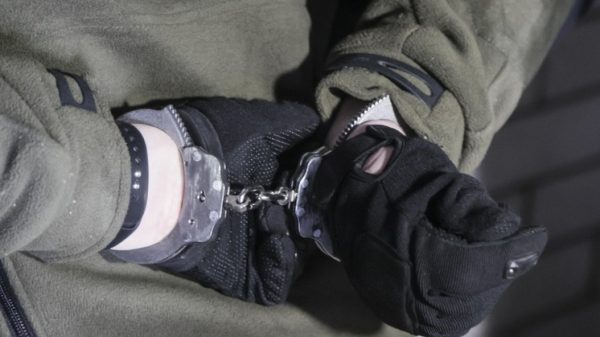At the offices of the Hungarian Helsinki Committee, a human rights group in Budapest, András Léderer and his colleagues have a map on which they track every asylum seeker – man, woman or child – who has been physically pushed back by police from the Hungarian border and into the forests of Serbia.
The pushbacks are illegal under international law. Yet it is Léderer and his fellow human rights activists who could face arrest and a jail sentence if they went to the border to witness what is happening there.
“We aren’t allowed to go to the border,” says Léderer. In 2018 it became illegal to help migrants claim asylum and this includes a ban on visiting the border. “Until the Covid lockdown we went to Serbia to speak to people, to record the stories of violence and humiliation, but we can’t even travel now. People are being beaten, dogs are used against them, their shoes taken, they have cold water thrown over them. It still happens but we can’t see it.”
All across Europe – from the Serbian forests to the Aegean Sea – asylum seekers are pushed back from the borders in their thousands. As the authorities increasingly turn their attention to stopping the work of human rights activists and observers, much of it is happening without witnesses.
Q&A What is the Rights and Freedom series?
Show
Hide
A year on from the start of the world’s biggest health crisis, we now face a human rights pandemic. Covid-19 has exposed the inequalities and fragilities of health and political systems and allowed authoritarian regimes to impose drastic curbs on rights and freedoms, using the virus as a pretext for restricting free speech and stifling dissent.
Rights and Freedom is a new Guardian reporting series to investigate and expose human rights abuses at this critical time, and elevate the voices of people on the frontlines, fighting back for themselves and their communities.
Was this helpful?
Thank you for your feedback.
“It’s hard to imagine,” says Léderer. “Anyone who is caught by the authorities or who approaches them to ask for asylum, they are taken in a car or a van immediately to the border with Serbia. There is no hearing, no administrative work. The police open a gate in the border fence and they literally push them into open forest, women, children, everyone.”
The Geneva convention on refugees states that people escaping war and persecution can cross borders without papers if they have to. But rights groups are warning that violent and illegal pushbacks of migrants across Europe are rising.
“We are globally in a worse place for people seeking asylum than at any time I can remember,” says Steve Valdez-Symonds, migration director at Amnesty International. “The situation with pushbacks is significantly worsening, just look at Greece. But this is partly because of a complete failure of solidarity right across Europe.”
With the increasing violence against those attempting to claim asylum comes attacks on the human rights defenders, lawyers, volunteers and NGOs trying to help them.
Earlier this month the Greek group Mare Liberum issued a report with other NGOs, describing an “unprecedented escalation of human rights violations in the Aegean, both at sea and on land”. The report documents more than 9,000 people on the move from March to December who were violently pushed back to Turkey and deprived of their right to asylum.
But this monitoring is under threat, it says. Last September, 25 police and special forces boarded its ship to search it and confiscated phones and computers.
Greek authorities have repeatedly denied allegations of pushbacks and have even called them “Turkish propaganda”. The Greek migration minister, Notis Mitarachi, has accused groups rescuing refugees at sea of people-smuggling.
The hostility on the ground has also affected those seeking asylum. Last November, a 25-year-old man from Afghanistan was charged by Greek authorities with endangerment of a minor, after his six-year-old son drowned on the crossing from Turkey to Samos.
If they make it through Greece, families can be pushed back at multiple places in the Balkans, from Bosnia or Romania back into Serbia. At every point activists monitor rights abuses and provide humanitarian support.
Prof Sue Clayton interviewed activists working with migrants across Europe for her book, The New Internationalists: Activist Volunteers in the European Refugee Crisis.
She told the Guardian: “I spoke to hundreds of grassroots volunteers across Europe who’ve stepped in where countries are failing – first to keep people alive, and increasingly to monitor state violence against migrants.
“Now these volunteers supporting them are also being increasingly criminalised. Governments don’t want this human rights work taking place because they want to press ahead with their ‘Fortress Europe’ plan.”
Every time I go face to face with police, my heart beats faster and I think: I don’t want to do this
Isabella Anderson, Human Rights Observers
Isabella Anderson works for Human Rights Observers in Calais. She says that even though legally she is allowed to carry out her monitoring work, the police make it difficult.
“The evictions go on throughout the cold winter weather, throughout the lockdown. We were fined 30 times during the recent lockdown for breaking ‘confinement’ rules while we conducted our human rights observations. In January alone we experienced violence from the police 61 times. I had a policeman driving and revving towards me as six others pushed me about. I have had a police officer pushing me and saying, ‘I am the law’.
“Every time I go face to face with police, my heart beats faster and I think: I don’t want to do this. We are unarmed, they are armed.”
In Budapest, Léderer says the law that bans people helping asylum seekers has a chilling effect. “It hangs there as a sword of Damocles. We work with difficulty, we provide legal assistance, we try to litigate against pushbacks, but we can’t monitor violence at the border now.
“The law has a very chilling effect here. To help refugees means you risk being a criminal so people prefer not to get involved. The number of groups providing assistance has shrunk significantly and state authorities are very reluctant to cooperate with us.”
‘Police searched my baby’s nappy’: migrant families on the perilous Balkan route
Read more
Yet despite all they are up against, the activists say their work is challenging the anti-asylum narrative.
Last week the advocate general of the European court of justice, the EU’s highest court, issued a statement advising that the Hungarian government’s crackdown on groups that support or advise asylum seekers is illegal under European law.
In December the European court of justice ruled that Hungary’s policy of refusing to let people claim asylum is a breach of EU law. Since then, in January alone, Léderer has counted 4,903 pushbacks. He sends this evidence on to the EU.
Frontex, the EU border agency, announced last month that it would no longer be able to operate in Hungary because of unlawful pushbacks.
“Despite the laws that criminalise our work we are still working and helping these people. And we fought for five years to get to the point last month where Frontex had to leave Hungary because of the evidence we gave of illegal pushbacks, so although we are not popular here, we have some optimism,” says Léderer.
The Hungarian government responded to the judgment of the advocate general saying it stood by its policies: “The commission and the advocate general, unfortunately, agree that it is completely acceptable to support, facilitate and organise illegal migration. In contrast, the Hungarian criminal code classifies these activities as a criminal offence. The government will continue to protect the borders of Hungary and Europe and will do its utmost to prevent the creation of international migrant corridors.”
In response to recent criticism of police actions, the prefecture of Pas-de-Calais said that the evictions “put an end to illegal occupations … with a twofold objective: to prevent the reconstitution of insalubrious camps and to provide shelter for the migrant population”. It added: “The action of the police during these operations responds to strict rules of ethics.”






















































Свежие комментарии